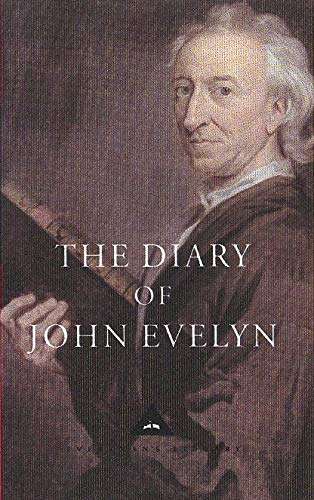
I loved the three years I spent with John Evelyn and his lengthy diary. But poor John Evelyn — polymath, public citizen (and official), friend to kings and scientists, but destined always to be second fiddle to his friend Samuel Pepys in the 17th century diarist derby. Pepys is the one who is (sometimes) still read, and still frequently cited whenever the English Restoration era is mentioned. Where Evelyn was a pious man and a devoted Royalist, Pepys was scurrilous and a political skeptic, making his commentary more consistently pointed. Both let you enter the everyday life of someone in a very different world than ours, but Pepys paints a much more detailed picture, which makes sense given that his diary covers just one decade to Evelyn’s seven. Pepys’ frankness is sometimes mind boggling; Evelyn wasn’t one for plumbing the depths. So even among those who spend time with this kind of literature, Evelyn is mostly just an occasional footnote to some event he may have referenced. I quite like him nonetheless.
Evelyn does seem to have cared more deeply for more people than Pepys, and that makes a difference in the story telling. All but one of his eight children predeceased him, most in infancy and childhood. And since Evelyn lived to be 85, he recorded the demise of many others close to him. (At no point does it appear that his piety failed him, at least that he documented.) The emotional impact of these accounts more than make up for the diary’s less dramatically interesting elements, such as his dutiful reporting of decades worth of weekly sermons. Pepys, too, reported on sermons, though not so exhaustively as Evelyn, and more as if he were reviewing a play than engaging theologically.
Pepys quite clearly wrote his diary for himself and spared no one, himself included, from embarrassing details. Evelyn, who authored a number of other books, seems to have intended that his diary be read, and probably published. Presumably he would have wanted to spare his own legacy from embarrassment, and also to communicate the right lessons to posterity. Late in life he seems increasingly remorseful about unspecified past sins, but it’s not clear whether he had truly done bad things, as Pepys definitely did (at least with regard to women), or whether he was simply going through the motions of repentance that he felt were required of a good Christian preparing for death.
Because Evelyn kept adding entries to that very month, the diary is a fascinating case study in aging. We’re there when he starts to frequently doze off at church. We hear more and more about the weather. And of course his ailments gain increasing prominence until he fell silent just three weeks before the end.
Finally, in both cases it’s fascinating to see the way educated men wrote before English spelling was standardized. Among the most striking features of their diaries is the lack of consistency from entry to entry in both names and common words. Reading either diary in full takes a certain kind of commitment, but if you like losing yourself in obscure detail they are highly recommended. For full effect, be sure to get an edition where the language hasn’t been modernized.
